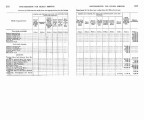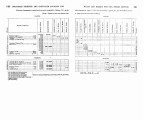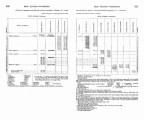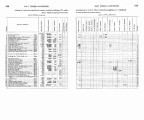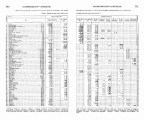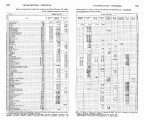| Title |
Annual Report of the Commissioner of Indian Affairs - 1895 |
| Subject |
Indian reservations; Federal government; Indians of North America; Indians of North America--Education; Courts; Allotment of land; Land use; Railroads; Timber; White people--Relations with Indians; Health; Annuities; Horses; Crime; Missionaries; Irrigation; Grazing; Alcohol; Livestock; Natural resources; Education; Water rights; Agriculture; Religion; Hunting; Fishing; Indigenous peoples--North America |
| Keywords |
Annual Report; Indian Agency; Reservations; Tribal Funds; Land Rights; Allotment; Indian; White Relations; Fishing Rights; Native Americans |
| Publisher |
Digitized by J. Willard Marriott Library, University of Utah |
| Tribe |
Ute; Shoshone |
| Language |
eng |
| Description |
Excerpts concerning Utah from the Annual Report of the Commissioner of Indian Affairs - Courtesy of the University of Wisconsin Digital Collections. Commissioner Browning discusses enrollment in schools, allotment distribution, the issuing of patents, protocol regarding timber and logging, and conditions on various reservations across the country. The Commissioner outlines the policy for assigning allotments on the Ouray Reservation and reports that no new leases had been approved on that reservation in the past year. The Commissioner also discusses fishing and hunting rights for the Shoshones and Bannocks in Wyoming. The Uintah Ouray Agent submits a report describing improvements made to the boarding school, advances toward cultural "civilization", the use and maintenance of allotment lands, and the perceived lack of missionaries on the reservation |
| Type |
Text |
| Coverage |
Uintah and Ouray Indian Reservation (Utah); Utah; Washington (D.C.) |
| Format |
application/pdf |
| Rights |
Digital Image © 2011 America West Center. All Rights Reserved |
| ARK |
ark:/87278/s6qz56m4 |
| Creator |
Browning, Daniel M. |
| Date |
1895 |
| Spatial Coverage |
Uintah and Ouray Indian Reservation (Utah); Utah; Washington (D.C.); Whiterocks (Utah) |
| Setname |
uaida_main |
| ID |
372321 |
| Reference URL |
https://collections.lib.utah.edu/ark:/87278/s6qz56m4 |
















































































































































































